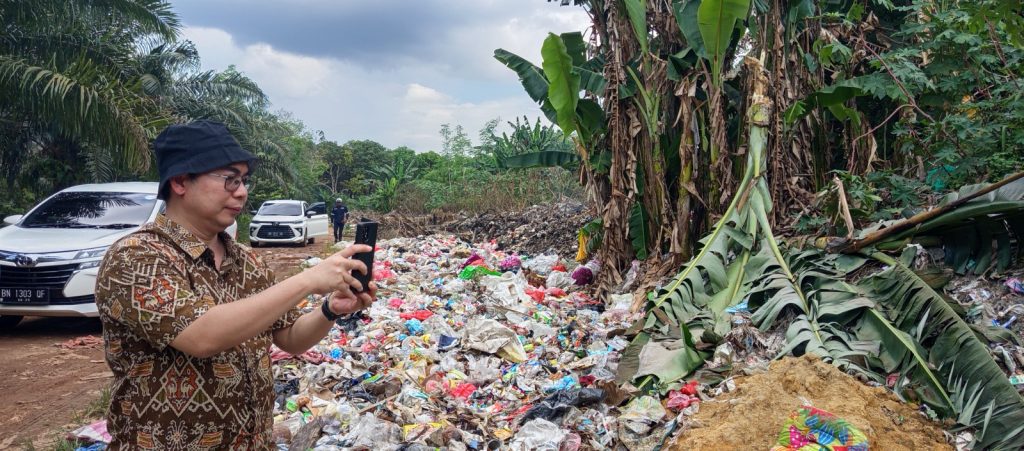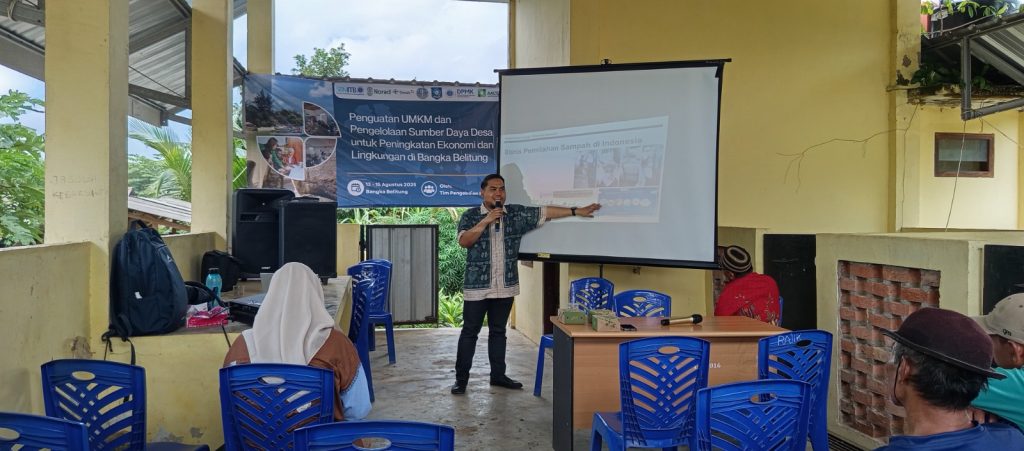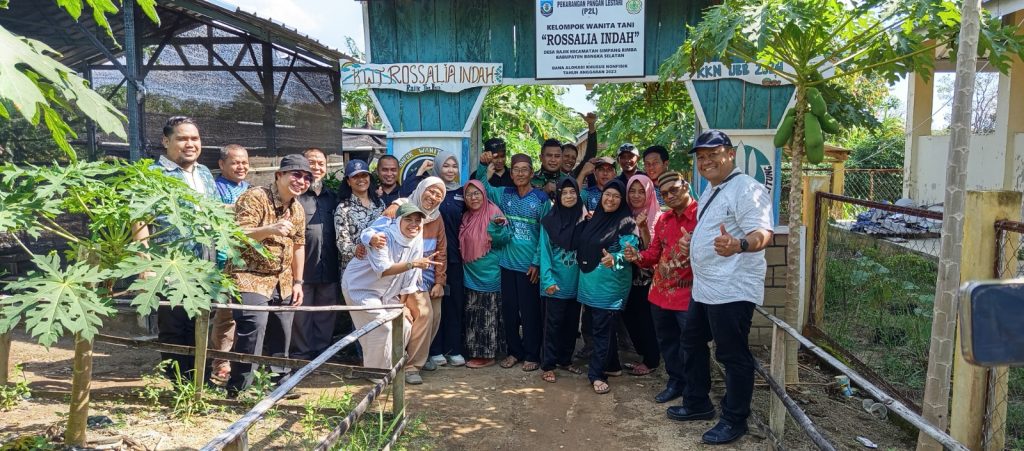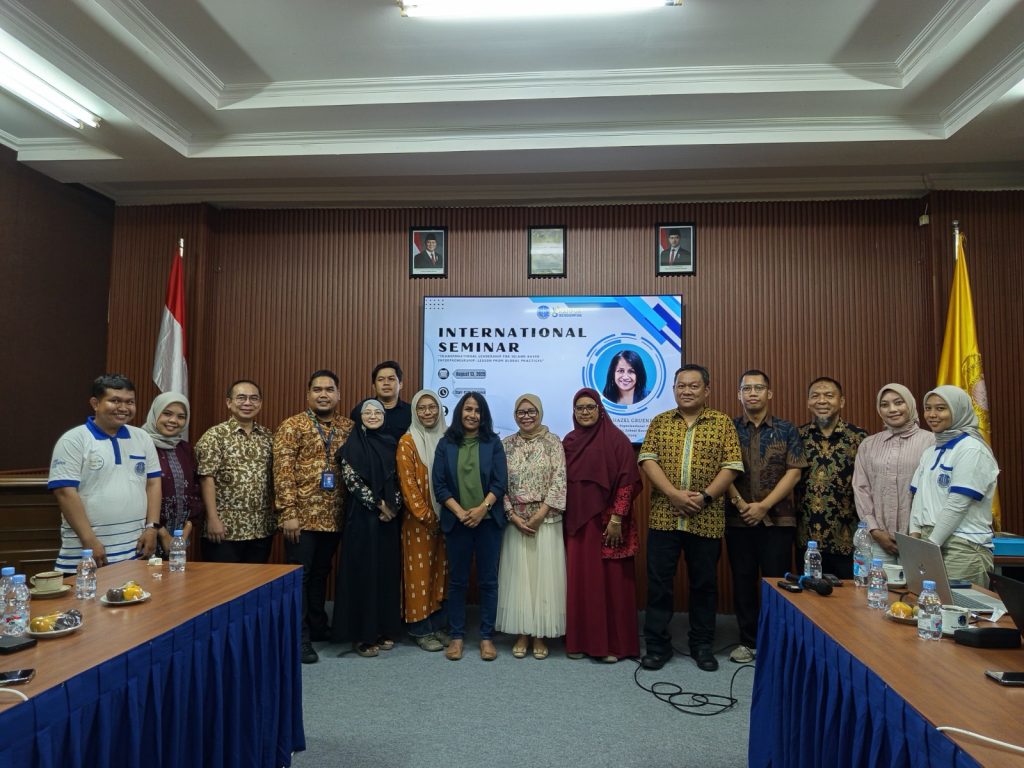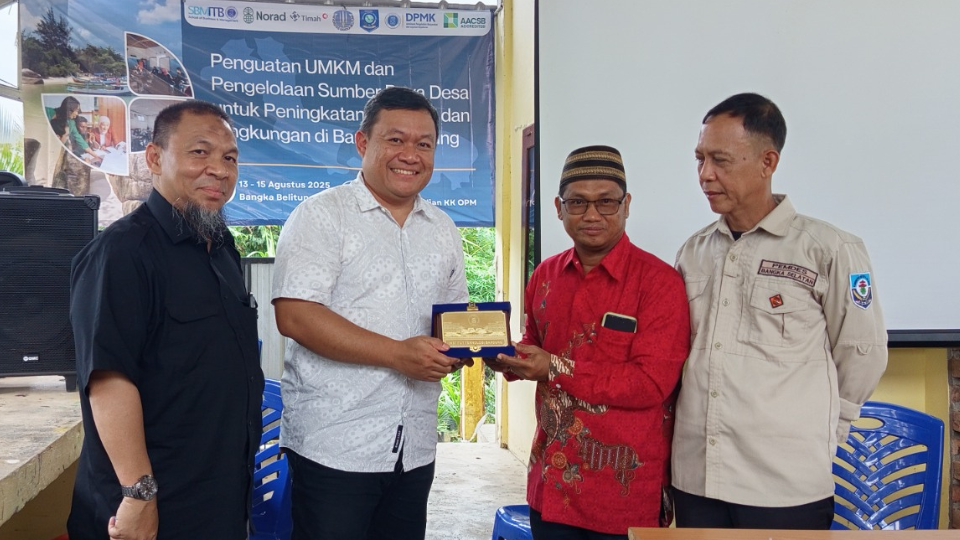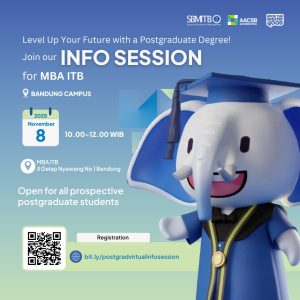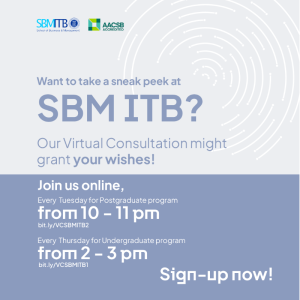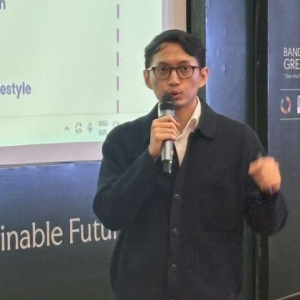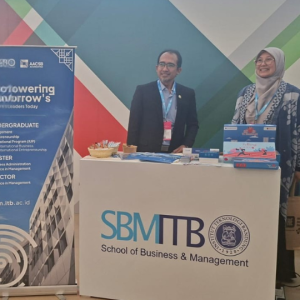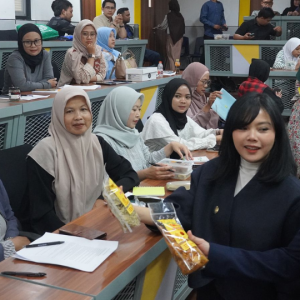SBM ITB, through its Operation and Performance Management Expertise Group, in collaboration with PT Timah and the University of Bangka Belitung (UBB), held a community service program in Bangka Belitung. Themed “Strengthening MSMEs and Village Resource Management for Economic and Environmental Improvement in Bangka Belitung,” this program focused on Air Abik Hamlet, Gunung Muda Village, Bangka Regency, and Permis Village, South Bangka.
The program opened with an international seminar titled “Transformational Leadership for Island-Based Entrepreneurship: Lessons from Global Practices” at the University of Bangka Belitung on Wednesday (August 13th). Prof. Dr. Hazel Gruenewald, an expert from Reutlingen University, Germany, presented the seminar. The seminar explored transformational leadership strategies that can drive positive change in entrepreneurial activities on the islands.
This year, it is implemented through three main integrated programs, designed to promote sustainable development while developing the potential of the local community. This program involved various parties, including village officials, academics, and the local community. Nur Budi Mulyono, the head of the SBM ITB team, emphasized the importance of cross-sector collaboration in addressing challenges in a village.
“Addressing issues in a region requires collaboration from multiple stakeholders to achieve sustainable outcomes,” he said.
The second day of the seminar focused on integrated waste management in Permis Village. SBM ITB lecturer Noorhan Firdaus Pambudi explained the concept of TPST 3R (Reduce, Reuse, Recycle) and various practical waste management strategies during the session. These included reducing waste at the source, reusing used goods, and processing plastic waste into valuable products. He highlighted that while Indonesia has an abundance of waste, much of it does not meet the quality standards required for processing. Consequently, waste reduction should be seen as not only decreasing waste but also enhancing value for the community.
“It is unfortunate that we have not been able to utilize it ourselves. That is why ‘reduce’ is not only about minimizing waste but must also be made profitable,” Noorhan stated in his presentation.
On the third day, the focus was on social mapping, which aims to identify the community’s potential, needs, and social structure. The findings from this mapping will serve as a foundation for designing more targeted and sustainable development programs. Through these three activities, SBM ITB hopes to make a tangible contribution to the Bangka Belitung community while strengthening collaboration to promote economic growth and empower local residents.
#Collaboration #Kolaborasi #innovation #InovasiDaerah #BangkaBelitung #SBMITB #ITB #LocalMSMEs #SDG8
